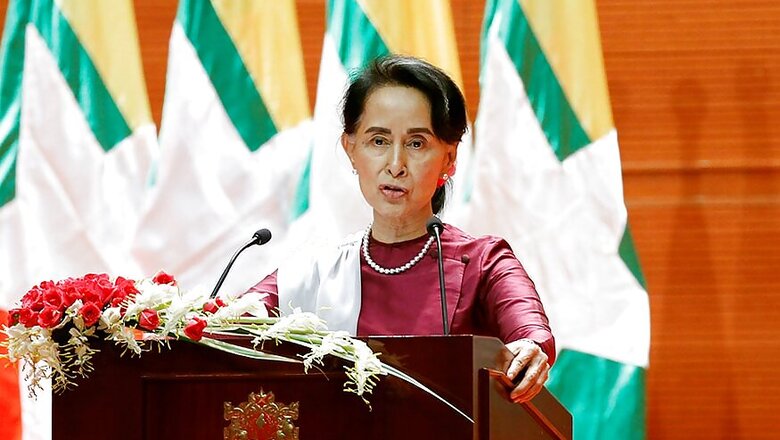
views
New Delhi: After weeks of criticism of her government’s handling of the mass exodus of Rohingyas, Aung San Suu Kyi, Myanmar’s State Councillor, has finally spoken out. But I doubt if it will soothe her critics and fans-turned-sceptics, some of whom had even called for her Nobel Peace Prize to be taken back.
Suu Kyi offered to take back those Rohingyas who wish to come home, but only after a thorough verification process and India should take up on this offer.
There are 40,000 Rohingyas who have fled to India over the last many years. Less than 15,000 of them have legal documents or identification papers that are required to stay in India.
How the rest of them managed to get here without papers is a debate in itself. Clearly, this couldn’t have happened without some amount of ‘greasing the palms’ of police and local government officials in various states.
The larger question is this: How does the government know to separate potential terror recruits from the larger populace?
The fact is, there are no water-tight mechanisms to seal this separation process. There is already evidence from last year of Rohingya terrorist Chotti Bari being killed alongside Jaish commander Adil in an encounter in Kashmir.
There are many such linkages between Rohingyas and Pakistan-based terrorist outfits like Jaish-e-Mohammed and Lashkar-e-Taiba in the possession of intelligence agencies, some of which will be presented before the Supreme Court in a sealed envelope on October 3, the next date of hearing in the case.
The attempt here is not to present every single Rohingya refugee as a potential terrorist. It is simply to make the case that there is no credible method to ensure that none of these folks become potential terror recruits.
This country has already lost one Prime Minister in Rajiv Gandhi to refugees who later became terrorists. We can’t afford to take chances.
The best case scenario is to prepare a roadmap in co-ordination with the Myanmar government for the repatriation of these refugees back to their native land.
The argument that is put forth by the liberals is that India being the only large democracy in this part of the world should be a leading light when it comes to compassion and humanitarian concerns of a stateless people.
This argument has both flaws and limitations. In a country of 300 million people struggling with poverty, we don’t want thousands more to compete for the same meagre resources.
Let’s fix our home first before we throw our doors open. Trying to be good hosts to Tibetan and Tamil refugees didn’t exactly elevate India’s profile globally.
Countries respect other countries for their economic or military might. Not whether they uphold human rights or are good hosts to fleeing refugees.
Take the case of China. Not being a democracy or having an appalling human rights record has not stopped the world from recognising China as the next superpower.
If India has ambitions to be the next superpower, then it will be judged by its economic and military heft, not by how it treats the Rohingyas.
For now, this is Myanmar’s problem, not ours.



















Comments
0 comment